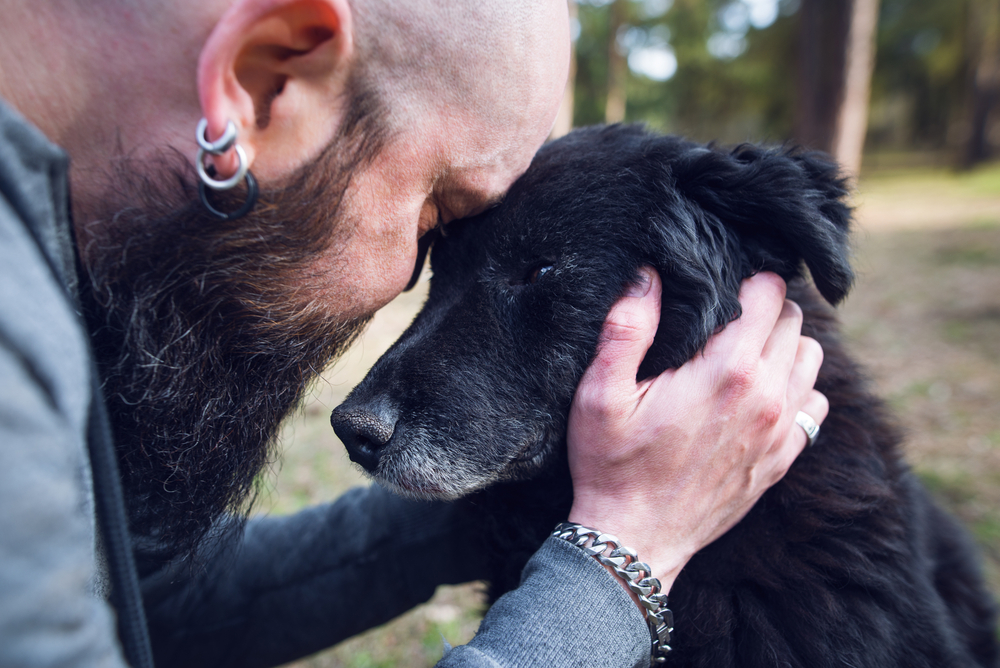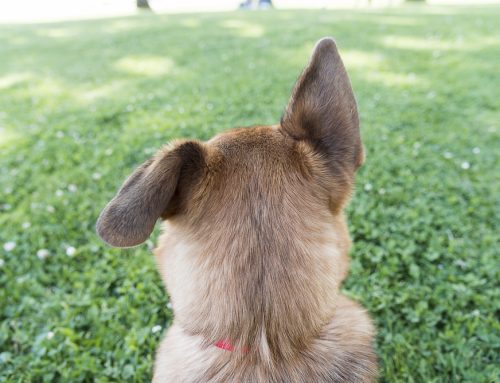Pets are there for us in every life moment, through the ups and downs and twists and turns. Your relationship with your pet is unique and special, and losing your beloved companion can be devastating. While nothing can truly make this easier, learning to accept and understand your grief and finding support can help you cope and find peace. At Golden Years Veterinary Services, we understand the deep bond you share with your pet, and we are here to help guide you through your pet’s final days as well as the grieving process following their loss.
Pet loss grief and emotions
Pets, people, and their relationships are highly individual, and no one person’s grief will look like another’s. Emotions including denial, anger, sorrow, anxiety, and depression are common when you are grieving, and don’t follow a linear pattern. You may also feel helpless, empty, numb, lonely, or guilty, and all these emotions are normal. Ultimately, the grieving process will help you accept and adapt to your pet’s loss, and allow you to look back and smile rather than cry— but this can take weeks for some, and years for others.
Preparing for pet loss
Sometimes, a terminal diagnosis allows us to prepare for a pet’s upcoming loss. Other times, we can see our pet getting older and anticipate their eventual passing. This can be a blessing and a curse, because we can begin the grieving process while we still have our pet, which allows us to work through important emotions, more easily accept the loss when it occurs, and make advance arrangements. However, the grief associated with the anticipated loss, also known as anticipatory grief, can be an emotional roller coaster, as we move through periods of anxiety, depression, and avoidance, and sometimes peace or acceptance. Understand these feelings are normal, allow yourself to work through them, and use this knowledge to ensure your pet’s remaining time is full of love and their favorite things.
Why losing a pet is so hard
Losing a pet can feel like the ultimate heartbreak—like your insides have been ripped out—and many people consider the loss more intense than losing a human friend or family member. Your pets give you unconditional love, 24/7 companionship, and purpose. You build your life and routines around your pet’s needs, and their loss can completely disrupt your life—not to mention missing their obvious physical absence. Intense feelings surrounding pet loss are completely normal, and it’s OK to feel however you are feeling.
Some ways to help you cope with pet loss include:
- Acknowledging your emotions — Running from or hiding your emotions will prolong your pain. Acknowledge your feelings, know whatever you’re feeling is OK, and allow yourself to feel them.
- Finding support — Others, though well-meaning, may not understand your relationship with your pet. Finding support from people who understand your loss, who may be family, friends, websites, chatrooms, telephone helplines, and in-person support groups or counselors, is extremely important, so you feel heard and validated.
- Memorializing your pet — Memories and physical memorials will help ensure your relationship lives on in your heart and mind, and honor your pet’s life. Photos, shadow-boxes, paw and nose prints, urns, jewelry, statues, and garden stones are a few ideas.
- Taking care of yourself — Many people stop eating, overeat, lose sleep, or turn to alcohol when they experience strong anxiety, depression, or grief. But, to work through your grief and support your family, you must take good care of your physical body by eating nutritious foods, maintaining a consistent routine, and exercising. Consider personal counseling if you are struggling with emotions or substance abuse.
- Using pet loss resources — If you are having difficulty overcoming your grief, trouble functioning in your daily life, or find yourself withdrawing from family or friends, don’t hesitate to reach out for help. Many veterinary clinics can guide you to local support groups or individual counselors, and a phone support helpline can provide immediate assistance. Our website lists books, articles, helplines, and websites you may find helpful—you can access them here.
Helping others grieve your pet’s loss
Other household members also will grieve your pet’s loss, including children and other pets. Children need help understanding what happened, and working through their emotions. Check out our resources page for books and websites to help with your child’s grief. Pets in the home will recognize another pet’s departure, and may mourn their companion’s loss by acting lethargic, not eating, becoming less social, whining, or seeking more attention. Pets can also sense when you are upset, and will experience these emotions with you. Ask your veterinarian to rule out a medical problem if your pet’s attitude and appetite don’t improve with time.
When to get another pet

Some people feel that losing their pet was too unbearable to ever welcome another pet into their lives, while others want to quickly fill the void left behind. The decision to get a new pet is personal, and should be considered only when all family members have accepted the pet’s loss. If a household member is struggling, they may resent a new pet or feel the relationship with the previous pet has been diminished. All family members must recognize that a new pet will not replace the previous pet, despite a similar name, look, or breed. Pets are individuals, and you can honor your previous pet’s life, while acknowledging at the same time the new relationship with another pet.
Pet loss can leave you with a hole in your heart. If you feel that such a terrible wound will never heal, these coping strategies can help you through the process. However, if you or a loved one are struggling with pet loss grief, do not hesitate to use the resources suggested, or contact us at Golden Years Veterinary Services and, together, we can go through this journey.




Leave A Comment